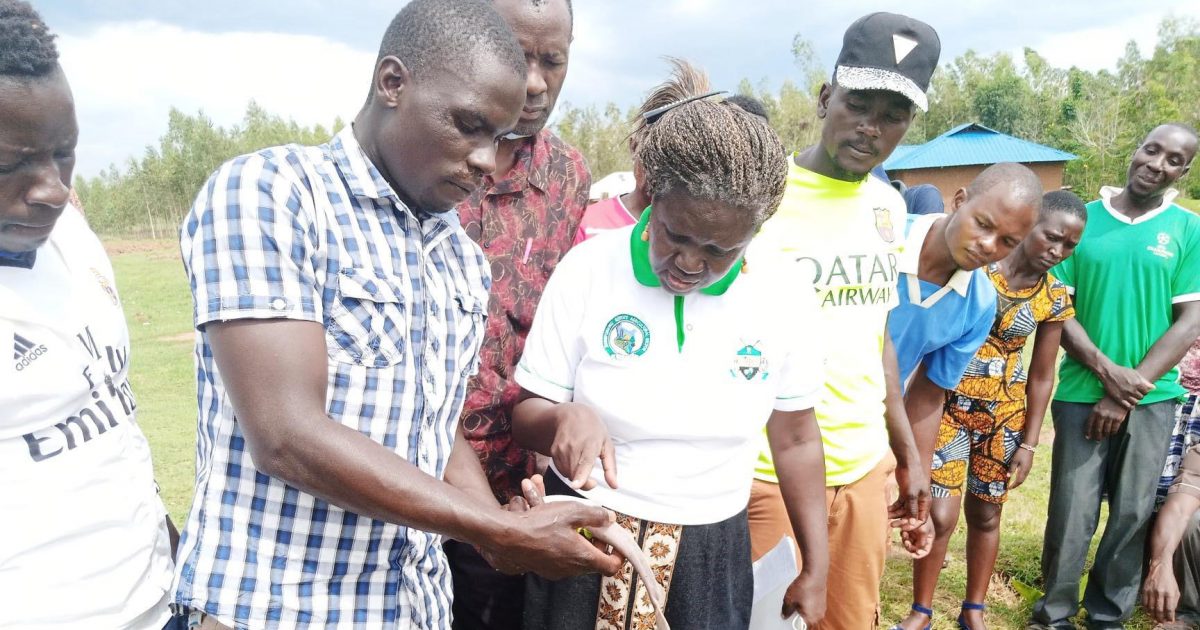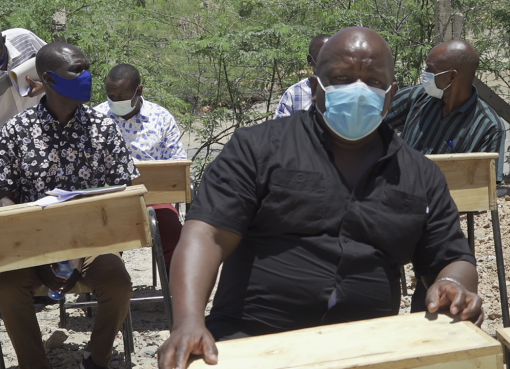When Dennis Onyango, 35, left a salaried job to venture in fish farming as a business, his friends and relatives were skeptical of his decision. But ten years later, he is among the successful commercial fish farmers in Siaya County.

“I’m glad I ignored the skeptics and braved the challenges to establish a reliable source of income,” he said at his farm in Kadenge village, Central Alego Location, in the County.
After getting his Diploma in Agriculture in 2006, he went to Uganda where he was employed at two fish breeding and processing firms, for five years.
Onyango said he decided to quit employment because the salary of sh.15, 000 monthly did not meet his obligations of upkeep and to pay school fees for his younger siblings. “Being the first born and my mother as a peasant widow, I had to think of better source of income,” he recalled.
The youth said the idea of fish farming as a business was viable, because of the experience he had gained at the firms, and availability of suitable land.
Some people had started the business of breeding fish in ponds in the area as business, but failed a few years later. “This is the history that the skeptics used to discourage me from venturing in the field,” he said.
With only Sh.10, 000 saving, Onyango decided to quit employment in 2011 to return home to pursue his dream. Friends helped him to dig a fish pond, then he used the money to buy fish fingerlings in Tororo, Uganda.
Nine months later, he harvested the fish, but most of it got rotten for lack of freezer and transport to markets. “I could not even recover my capital, so I even thought of abandoning the business to search for employment again,” he said.
But Onyango’s mother encouraged him to stay put, and seek assistance from the relevant organisations.
He then sought the support from the Department of Fisheries and the Agricultural Sector Development Support Programme Phase Two (ASDSP II), in the county. From them, Onyango received funds that he used to sink seven fishponds, in which he breeds tilapia.
The young farmer also received fish feeds, pond liners and nets, which saved him investment capital.
“Currently my average profit per year is sh. 350,000 from the sale of tilapia fish at Sh.300 per kilo,” Onyango said.
Market and transportation are no longer a hitch, as most of the fish was bought on order from hoteliers in Kisumu and Nairobi, who come to take the commodity from his farm using refrigerated trucks.
In 2019, ASDSP II trained Onyango on business planning, farm management, and fish breeding skills, all of which he said contributed to his success. The organization has also recruited him as an extension service provider, to impart the skills to those interested in fish farming. “From this I earn Sh.35, 000 for one week’s session,” he said.
With the improved income, Onyango said he was now able to meet all his financial obligations, and to buy more equipment to expand his business. “On investment, I have bought a solar system, a generator and water pumps, all of which facilitates the pumping of water from Lake Kanyaboli to my ponds. Besides, I have also bought a motorcycle that I use in the extension work and marketing,” he said.
Insect Pro Company, also assisted Onyango by providing him with ten 50 kg bags of black soldier fly larvae as fish feed, and also taught him how to rear the larvae. The fly larvae are also used as chicken feed, which means he will earn extra income by selling it to fish and poultry farmers.
Onyango said his challenge was how to raise Sh.250, 000 to buy a fish hatchery to produce fingerlings to farmers, who find it difficult to travel at least 200km to get them. Similarly, he needs another sh. 150,000 to set up a facility for rearing the fly larvae. “if these plans succeed, my profit per year would increase to Sh.500,000,” he projected.
The Siaya County ASDSP II Coordinator, Mr. Otieno Owuor, said his organization now uses Dennis Onyango’s farm and success in commercial fish farming, as an example to motivate the youth to adopt the same. “This is proof that fish farming can help reduce unemployment among the youth,” he said.
“But despite the challenges, I’m glad I stuck with the fish farming initiative to build a viable source of income, and I encourage the youth to follow my example,” Onyango said.
By Paul Olale





